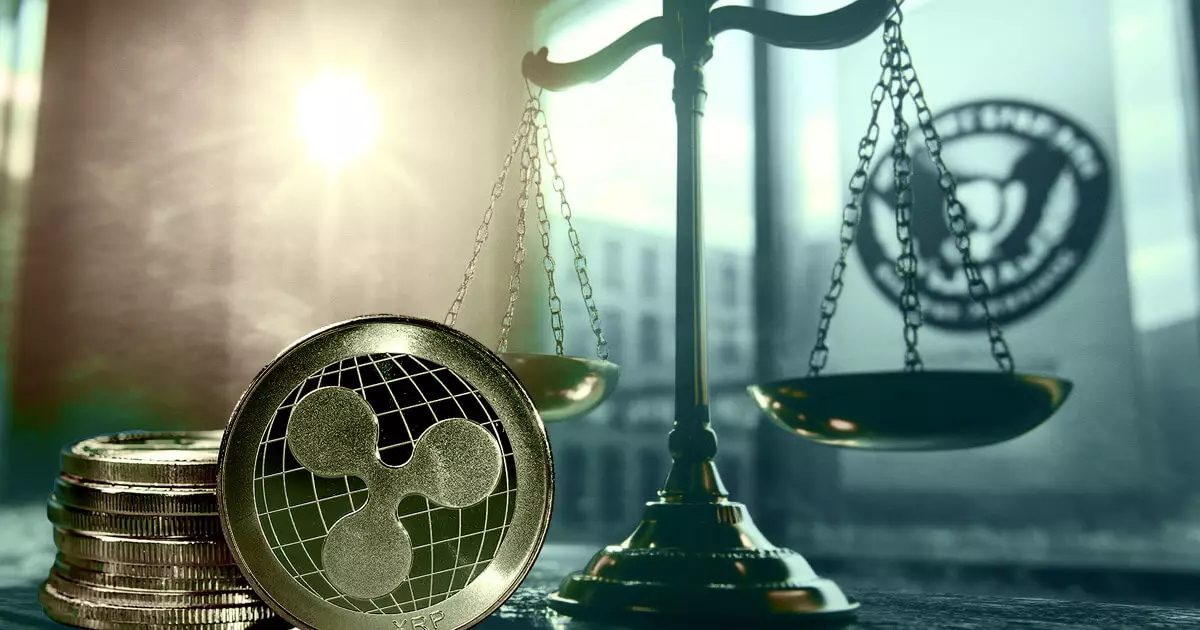The legal confrontation between Ripple Labs and the U.S. Securities and Exchange Commission (SEC) has garnered significant attention within the cryptocurrency community and beyond. This case not only tests the boundaries of current securities law as it applies to digital assets but also shapes the environment in which cryptocurrencies operate in the United States. As Ripple faces the SEC’s recent appeal regarding Judge Analisa Torres’s ruling, the implications of this legal battle could impact the future landscape of cryptocurrency regulation.
On October 17, the SEC filed a Civil Appeal Pre-argument statement, known as Form C, in their pursuit of an appeal against certain elements of last year’s landmark ruling by Judge Torres. The court had previously determined that Ripple’s sales of XRP to retail investors through exchanges did not qualify as securities transactions. This decision was a significant win for Ripple, suggesting a more favorable regulatory posture for retail transactions involving cryptocurrencies. However, the court’s ruling did find that Ripple’s sales of XRP to institutional investors were indeed in violation of securities laws, illustrating a duality in the treatment of XRP based on the type of investor.
The SEC’s latest filing indicates its focus on appealing aspects of the case that are crucial to their enforcement agenda. They expressed intentions to contest Ripple’s programmatic sales on digital trading platforms and the distribution of XRP to employees and other third parties. Notably, the SEC plans to scrutinize Ripple executives Brad Garlinghouse and Chris Larsen more closely, alleging that their actions constituted aiding and abetting illegal XRP sales. This broadens the scope of the dispute and adds a personal dimension to the litigation as the SEC aims to hold individuals accountable alongside the corporate entity.
One particularly interesting aspect of the appeal is the SEC’s request for a “de novo” review of the case, suggesting that the appellate court reassess the legal questions without necessarily deferring to the district court’s previous judgments. This means that the appellate court will have the opportunity to scrutinize Judge Torres’s prior conclusions with fresh eyes, potentially leading to different interpretations of key legal principles involving digital assets.
The SEC’s failure to appeal the $125 million monetary penalty or disgorgement denial could point to a strategic decision, perhaps acknowledging that some aspects of the ruling are favorable for Ripple. This selective approach could indicate that the SEC is weighing its priorities and focusing on elements of the case that are more likely to yield favorable outcomes.
Community Reaction and Implications
The broader cryptocurrency community has reacted with a mixture of concern and intrigue as the SEC’s appeal unfolds. The timing of the filing has raised eyebrows, especially since it came shortly after the SEC signaled its intent to challenge the ruling. Skeptics worry about the potential for delays while others speculate whether this could provoke Ripple to ramp up its legal defenses or recalibrate its strategy in response to the heightened scrutiny.
Ripple’s Chief Legal Officer, Stuart Alderoty, has positioned the company as steadfast amidst these challenges, emphasizing that the ruling affirming XRP is not classified as a security remains unchallenged. His comments underscore a persistent determination from Ripple to uphold the favorable aspects of the initial ruling while implying that the SEC’s push is fraught with obstacles.
Ultimately, the outcome of the Ripple case could have far-reaching implications for the regulatory landscape of cryptocurrencies in the United States. Should the SEC succeed in overturning parts of Judge Torres’s ruling, it could set a precedent affecting not only Ripple but other cryptocurrency projects that rely on similar sales structures. Conversely, a reaffirmation of the ruling could strengthen the notion that cryptocurrencies like XRP can exist outside the framework of traditional securities regulation, fostering innovation and acceptance within the space.
As this battle progresses, it will be crucial for stakeholders across the cryptocurrency ecosystem to keep a close watch on developments, as the ramifications of this legal challenge extend far beyond Ripple and may redefine how digital assets are understood and regulated in the future.














Leave a Reply